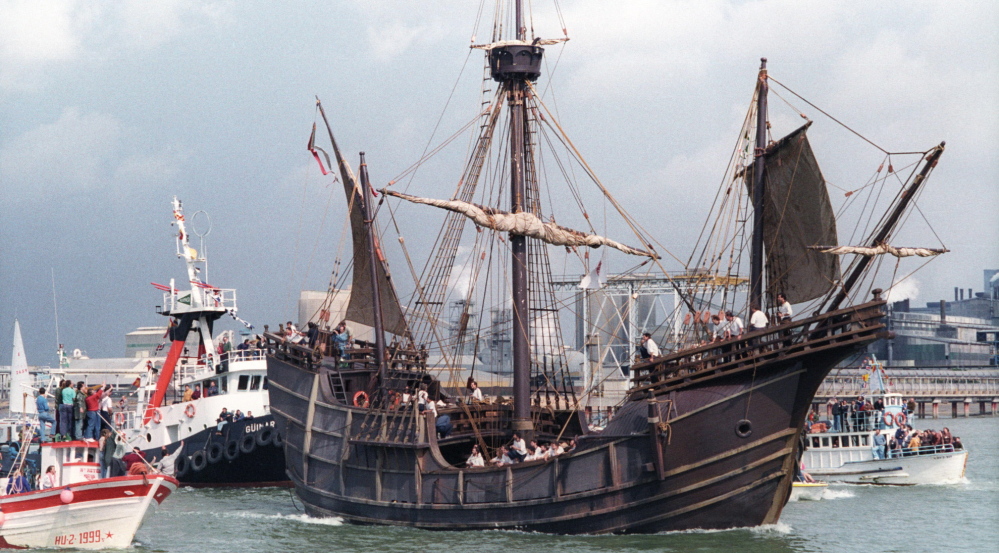After reading Cynthia Dill’s Oct. 8 column about Christopher Columbus in the Maine Sunday Telegram, I was reminded of a quote from L.P. Hartley: “The past is a foreign country; they do things differently there.” They do indeed, and Ms. Dill would have done well to consider just how different the 15th century was from the 21st, before embarking on her ill-considered tirade on the sins of Columbus.
With very few exceptions, that distant age accepted conquest, pillage, slavery and forceful conversion of captives to the victor’s religion as acceptable, even praiseworthy behavior. This was not just the case in Europe, but also in Africa, the Islamic world, India and the Far East. And, yes, it was also acceptable behavior among the native peoples of the Western Hemisphere.
The Taino people of the Bahamas, who Columbus first encountered, had recently been pushed out of the lusher, more fertile islands to the south by the Arawak, who in turn, were slowly being overwhelmed by the Carib people. These Caribs were originally from northeastern South America and were engaged in a brutal conquest of the Caribbean islands at the time Columbus arrived. Does Ms. Dill also want to rename the Caribbean Sea because the Caribs were ruthless colonialists?
We can argue endlessly over whether the Caribs or Columbus were the more barbaric, or whether the Apaches were crueler than the Puritans. What was most egregious in her column was Ms. Dill’s breezy dismissal of Columbus’ monumental feat of navigation. Columbus, like all educated people in the late 15th century, knew that the world was spherical, and that its circumference was roughly 24,000 miles at the equator.
This was known since the time of the ancient Greeks. What was unknown in the 15th century was the distance that the Asian landmass extended to the east. Columbus, and some others, thought that Asia wrapped around the globe to within 3,000 miles or so of western Europe.
He was brave, reckless and very lucky that the islands of the Caribbean were about 3,000 miles west of Spain. He was also brilliant, having spent years previous to the epic 1492 voyage, sailing thousands of miles north and south, recording the latitudes of the easterly trade winds in the tropics, and the prevailing westerly winds of the higher latitudes. Without this knowledge, he would never have been able to return to Spain in the ships of his era, which had almost no ability to sail to windward.
Christopher Columbus was a superb navigator, whose geography was a little weak. That is why the honor went to Amerigo Vespucci and we call the continents “North America” and “South America,” not “Columbia.”
Columbus was also very much a man of his age, who, not surprisingly, was lacking in 21st-century standards of tolerance and social justice.
However, his courage and navigational skills are unquestioned and changed the entire world forever. For this we honor him.
Send questions/comments to the editors.



Comments are no longer available on this story